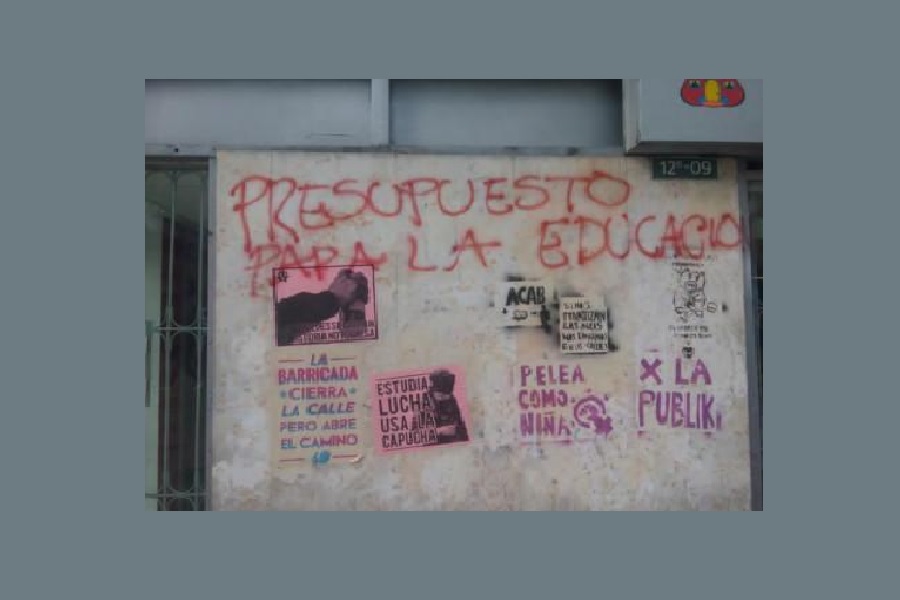
Action to End the Education Financing Crisis
February 12, 2021Article published in ALAI’s magazine No. 551: Derecho Humano a la Educación: horizontes y sentidos en la post pandemia 10/12/2020
1. Introduction
The right to education has been strongly asserted and embedded in human rights treaties for decades. Global leaders have also made bold political commitments to Education For All (EFA) first in Jomtien in 1990,i reiterated in Dakar in 2000 and reformulated as Sustainable Development Goal (SDG) 4 in Incheon in 2015.ii But the right to education is routinely violated, with over 61 million primary-aged children out of school, a further 60 million out of lower secondary schooliii and an alarming 250 million children estimated to be in school but failing to learn. This article argues that the root cause of that failure is that grand commitments and declarations have not been matched by financial resources. Indeed, many of these commitments have been made during the decades when neoliberal economic thinking has been in the ascendancy, enforced around the world by the IMF and World Bank, whether through their loan conditions or coercive policy advice. Indeed, public education systems in most countries have been chronically underfunded for forty years.
The scale of the education financing crisis is being laid bare and exacerbated by Covid-19. At the height of the pandemic 1.5 billion children were forced out of school and it is unclear how many of them will be able to safely return. It is likely that millions of girls will not return to school owing to early pregnancy, early marriage or gender-based violence. It is equally likely that children who do return will find their schools with even greater resource shortages than ever. UNESCO estimates at least $210 billion will be cut from education budgets next year simply owing to declines in GDP. Pressure on governments to reallocate scarce resources to health might cut a further 5% from education budgets amounting to a total loss of $337 billion in education spending. Education systems that have already been underfunded for generations, may well face their most severe financing crisis in the next three years.
Thankfully, this bleak scenario is not a certainty. The Covid crisis could instead mark a turning point, with a renewed commitment to expanded financing of public education and other essential services. The solutions are clear but whether they are adopted depends on mobilising sufficient political will to seize this moment.
2. Action on Debt
An immediate first step has to involve action on debt. There was a new debt crisis emerging well before Covid came along. An increasing number of countries have been spending more on debt servicing than on education or on health. ActionAid’s research with the Jubilee Debt Campaign, published in April 2020, studied 60 countries, finding that the 30 countries with the highest debt servicing (over 12% of their national budget) had cut spending on public services by 6% in recent years. In contrast, those countries with debt servicing under 12% of their budgets, increased public spending by 14%. The link could not be clearer.
The latest Global Sovereign Debt Monitor has determined that 122 of 154 countries analysed should be considered “critically indebted.”iv According to UNCTAD, in 2020 and 2021 alone developing countries will be forced to hand over up to $1 trillion in external debt payments, money that is desperately needed for education and other frontline services. In the light of Covid various efforts have been made by the G20 and others to suspend debt payments for low income countries. This acknowledges the problem but fails to offer a viable solution as it does not reach all the countries needing help, does not address all the debt that they owe (including to private banks and China) and crucially only suspends payments for a short period. There is now a growing demand for full debt cancellation. This would have a transformative effect because it would give countries instant access to revenue that is already in their treasuries, enabling them to use that for a comprehensive response to Covid. Rather than paying back old debts, countries could spend their revenue on health, education and social protection.
In the longer term there is also a case for a new debt compact – between creditors and debtors – to ensure that all new loans are taken out based on a clear and transparent process, with proper democratic oversight. Loans can play an important role in enabling countries to invest in their development, but no country should ever find itself having to sacrifice crucial development goals I order to pay back old debts.
3. Action on Tax
Most education advocates have long focused on the share of the national budget spent on education – using the benchmark of 20% as an indicator of good practice. However, a fair share of a small pie is a small amount. By focusing almost exclusively on the share of the budget, education advocates have failed to pay sufficient attention to the overall size of government budgets – which is determined more than anything else by tax revenue.
Currently, tax revenues in low- and middle-income countries fall short of what is needed to guarantee universal quality public services. The average tax-to-GDP ratio in OECD countries is 33% of GDP in taxation with Scandinavian countries often having a ratio of over 40%. Lower middle-income countries average about 24% and low-income countries have an average tax to GDP ratio of just 16%. The countries with the lowest tax to GDP ratios – Pakistan and Nigeria – are also home to the largest numbers of out-of-school children. This is not purse coincidence. If a government does not collect sufficient tax revenue it is like a ‘regalian state’ (Thomas Piketty’s term), having the ceremonial appearance of a state but not in a position to deliver on its obligations to be a ‘social state’.
The IMF estimates that most countries could raise their tax-to GDP ratio by 5% in the coming years, so that the average low income country could rise from 16% to 21% – putting them in a position to dramatically increase social spending. ActionAid’s research showed that such increases could be delivered through Progressive Tax reforms ensuring that those who have more, pay more. This could be achieved through action on harmful tax incentives (through which countries lose $138 billion a year), aggressive tax avoidance (through which countries loose $500billion a year) , property, land and wealth taxes, carbon taxes, corporate income tax and digital taxes.
One of the great advantages of focus on tax reform is that this enables education advocates to find common ground with health activists, water and sanitation or social protection advocates. If we focus only on the share of the budget for education we are in competition with other sectors, but focusing on the size of the overall budget makes us allies. The table below shows what a 5% increase in tax to GDP ratio would mean for public services in a selection of countries:
| Country | Extra revenue in 2023 with 5% increase (compared to 2017) |
Could double budgets from current levels across social sectors… | …and still be left with |
| Afghanistan | $ 1.5bn | Education, health and social protection | $371m |
| Bangladesh | $32bn | Education, health and social protection | $ 17bn |
| Benin | $1.3bn | Education, health, social protection &WASH | $556m |
| Burkina Faso | $1.8bn | Education and health | $410m |
| Central African Rep | $172m | Education, health and WASH | $70m |
| Colombia | $30.8bn | Education, health and social protection | $3m |
| Congo, Rep | $1.9bn | Education, health and social protection | $1m |
| DRC | $8.2bn | Education, health, social protection &WASH | $6m |
| Ecuador | $6.3bn | Educationπ | $963m |
| Ethiopia | $11.6bn | Education, health and WASH | $5.89bn |
| Gambia, The | $156m | Education and health | $19.9m |
| Ghana | $7.8bn | Education, health, social protection & WASH | $3bn |
| Guatemala | $6.2bn | Education, health and WASH | $2.7m |
| Jamaica | $1.2bn | Health, social protection and WASH | $218m |
| Jordan | $3.2bn | Education, health and WASH | $2.8m |
| Kenya
|
$10bn | Education, health, social protection & WASH | $3.8m |
| Lesotho | $283m | Education∑ | $62m |
| Madagascar | $1.2bn | Education, health, social protection & WASH | $547.4m |
| Malawi | $732m | Education, health, and social protection | $97.6m |
| Mali | $1.8bn | Education, health, social protection & WASH | $620m |
| Mozambique | $1.3bn | Education and health | $0Ω |
| Nepal | $4.4bn | Education, health, and social protection | $2.3bn |
| Niger | $979m | Education, health, social protection & WASH | $121.6m |
| Rwanda | $1.3bn | Education, health, social protection &WASH | $697.5m |
| Senegal | $7.6bn | Education, health, social protection & WASH | $5bn |
| Sierra Leone | $380m | Education, health, social protection & WASH | $56.2m |
| South Africa | $27.9bn | Education | $3.5bn |
| Tanzania | $6.4bn | Education, health, social protection & WASH | $3.3m |
| Togo | $598mn | Education, health and WASH | $201.5m |
| Uganda | $3.1bn | Education, health, social protection & WASH | $1.5bn |
| Zambia |
$6.2bn |
Education, health, social protection &WASH | $3.7bn |
From https://actionaid.org/publications/2020/who-cares-future-finance-gender-responsive-public-services
ActionAid’s most recent research in this area looked at the amount of revenue that could be raise from just 3 big tech companies. If simple global reforms were made a selection of 20 countries could raise $2.8 billion between them from Facebook, Microsoft and Google. That could pay for 879,000 new teachers – who between them could transform education in each of the countries
4. Action on Austerity and Public Sector Wage Bills
Reducing debt servicing and expanding tax revenues could transform the resources available for education and other public services. But not in you are not allowed to spend the revenue you raise owing to coercive policy advice and loan conditions from the IMF which insist on austerity. In ActionAid’s 2020 report Who Cares for the Future: finance gender-responsive public services! one of the most startling statistics revealed that in 78% of low-income countries1, the IMF had advised countries to cut or freeze public sector wage bills in the previous three years. This has a particularly devastating impact on education as teachers are the largest groups on most public sector wage bills – so you cannot realistically recruit more teachers or pay teachers more if you have an overall limit. So, despite desperate shortages of teachers in many countries, Ministries of Finance have their hands tied by the IMF. This directly impacts any attempt to increase overall spending on education as teachers are often 90% of the education budget.
Revisiting this research six months later, in October 2020, the policy briefing The Pandemic and the Public Sector showed that although the IMF was being apparently generous in giving out emergency loans and allowing increase in health spending, they were also forecasting a rapid return to ‘fiscal consolidation’ – which is the IMF term for austerity. Indeed, most countries receiving emergency loans for Covid health responses were required to make clear commitments to revert to austerity within the coming year.
The root cause of the problem is that the IMF continues to see public sector wage spending as a problem rather than a solution. Nowhere is this better illustrated than in the fact, that the IMF does not consider the wages of public employees working in public services or other “pro-development” pursuits to be development spending; that designation is reserved for infrastructure such as schools and books for education, or hospitals, lab equipment and medication for health. If the significance of trained, quality workers for those areas were so recognized, it would be subject to “social spending floors,” which the IMF should, by its own guidelines, not recommend freezing or cutting.
Our latest research reinforces the case for a comprehensive evaluation of the IMF’s approach to public sector workers and public sector wage bills. There is a strong case for arguing that Covid-19 is the right moment for a fundamental re-think by the IMF, the time to move away from past policies, norms and practices which have left so many countries so ill-prepared for this health and economic crisis. Recognising that we are also facing a climate crisis increases the pressure for change – reframing how development is understood and moving beyond the narrow measure of GDP growth to factor in progress on human rights and development goals as integral to any economic measurement. And if the IMF does not embrace change then it is time for citizens everywhere to pressure their governments and international institutions to resist neoliberal dogma and adopt social and economic policies that value and care for both people and the planet.
5. Action on Increasing 4Ss
Whenever we argue for action on tax and debt and austerity a common response is that there is no point giving more money to governments because they can’t be trusted. Corruption is endemic and the money won’t end up improving public services in practice. Of course, we need to take this challenge seriously. There is corruption and mis-use of public resources (even though the bigger scandals are often in the private sector). We cannot just argue for more money for public education without a credible framework for how it should be spent. That is the logic behind the 4 S framework – which does not translate so easily into Spanish! This concerns the size of the budget overall, the share spent on education, the sensitivity of allocations and the scrutiny of spending in practice:
Increasing the share of the budget to education – as referenced above there is a well-established benchmark calling for governments to spend 20% of budgets on education. Tracking what share a government spends is a critical part of the bigger picture – but not enough on its own.
Increasing the overall size of government budgets – as outlined this is determined mostly by the tax revenue collected. However, it is also influenced by the macro-economic policies followed and by the level of debt
Increasing the sensitivity of the budget to policy priorities – some governments invest a disproportionate percentage of their education budget to benefit a small (but powerful and vocal) elite who access higher education. A more progressive and sensitive approach involves targeting spending to re-dress disadvantage. Pasi Sahlberg from Harvard University shows that countries who invest sensitively to make their education systems more equitable make significant progress in improving overall learning achievement.
Increasing the scrutiny of the budget – perhaps most important of all is that we need to ensure that there is independent scrutiny of education budgets. If people are not confident that budgets allocated will be properly spent it is hard to advocate for more resources. There are many positive examples of national and local budget tracking, of community audit groups tracking school budgets and of budgets being posted on school walls to ensure full transparency. These are crucial for ensuring that governments are held to account by their own citizens (rather than feeling accountable to external donors).
6. A Concluding Call to Action
In September 2020, 190 organisations signed a Call to Action on Domestic Financing of Education post-covid which touched on many of the key points raised in this article. The focus on domestic financing is key – as 97% of revenue for education is raised domestically (see The Learning Generation, Education Commission report). Aid and loans are relatively marginal – but they can make a difference when they incentivise or leverage deeper domestic commitment. Rich countries should play their part and reversing the recent decline in aid is important. But that aid should not come with conditions driven by donor countries. They should support the strengthening of public education systems based on national priorities set by national governments in consultation with national civil society. Sadly the aid effectiveness agenda is in decline with donor countries now more concerned to protect and advance their own trade and security interests. In this context, large increases in aid seem highly unlikely, though we can hope to defend and even increase the funding for some key actors who still seek to harmonise efforts, such as the Global Partnership for Education. Beyond that the call to the international community might more usefully focus on calls for debt cancellation, for changes to global tax rules and for ending the neoliberal obsession with austerity that has done so much to damage education systems around the world. Raising more funds from the international community always seems tempting as a way to make things better – but the real challenge is to stop the international system from continuing to make matters worse.
– David Archer, Head of Public Services, ActionAid International – david.archer@actionaid.org
1 In a review of IMF country documents for 2019, we found that of 23 low income countries (covering all the LICs with sufficient data available), seven (30%) expected to cut wage bills, 11 (48%) were freezing wage bills. Only five (22%) planned to increase wage bills.
i UNESCO, World Declaration on Education for All, Jomtien, Thailand (1990), adopted by the World Conference on Education for All, Jomtien, on 9 March 1990, https://bice.org/app/uploads/2014/10/unesco_world_declaration_on_educati….
ii UNESCO, Education 2030: Incheon Declaration and Framework for Action for the implementation of Sustainable Development Goal 4: Ensure inclusive and equitable quality education and promote lifelong learning, UNESCO Doc. ED-2016/WS/28, 2016, https://unesdoc.unesco.org/ark:/48223/pf0000245656
iii UNESCO, GEM Report 2016, http://uis.unesco.org/en/news/263-million-children-and-youth-are-out-school. The impact of COVID-19 on school attendance is discussed below.
iv Jubilee Germany/Erlassjahr, Global Sovereign Debt Monitor 2019, p. 4. https://erlassjahr.de/wordpress/wp-content/uploads/2019/05/Global-Sovereign-Debt-Monitor-2019.pdf.
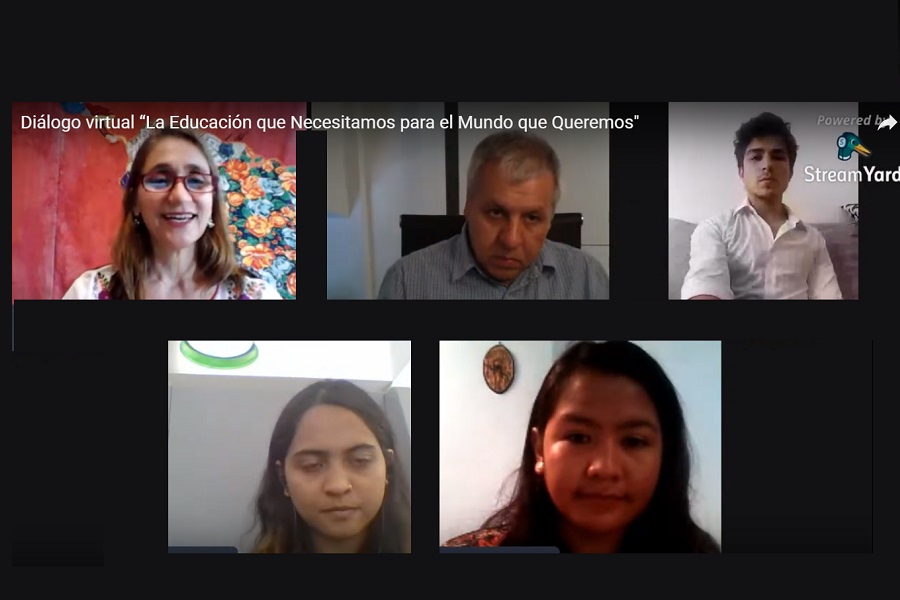
Experts and youths talk about the right to education in Latin America and the Caribbean
March 16, 2020“The Education We Need for the World We Want: views from adolescents and youths in Latin America and the Caribbean” was the title of the virtual conversation held by the Latin American Campaign for the Right to Education (CLADE), with the participation of youths and authorities from Latin America and the Caribbean, who stressed challenges and proposals to ensure the right to education in this region.
(more…)
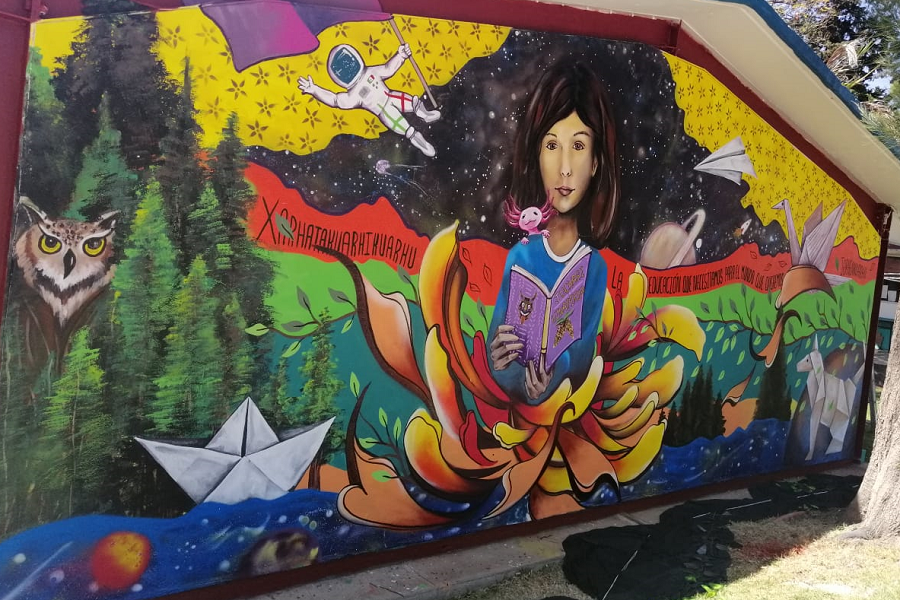
A mural on #TheEducationWeNeed painted in Mexican school
March 10, 2020
As part of the regional campaign #TheEducationWeNeed for the world we want, carried out from Oct. 2019 to Mar. 2020, students, artists and teachers joined at the Preparatory School Profesor Melchor Ocampo, located at the city of Morelia, in the State of Michoacán, Mexico, to paint a mural in which they present the expectations and opinions of adolescents and youths on the right to education.
The mural was conceived during a conversation with Michoacanian artists Bethel Cucue and Alain Silva, from Cherán community. In the final version of the mural, it not only shows the participation of the students and their dialogues on their right to education, but also their ideas, emotions, dreams and concerns, as well as the particular identity of each of them.
To find out more about this action, the Latin American Campaign for the Right to Education (CLADE) talked to the school’s cultural coordinator, Paulina Mojica, and two of the students who took part in this activity: 17-year-old Brandon Vargas and 16-year-old Yafeth Ulises Soto.
“We tried to register in a mural our ideas on the #LaEducaciónQueNecesitamos para el mundo que queremos campaign slogan and by that to inspire more students to keep growing personally and professionally”, affirmed Yafeth.
Read the full interview below:
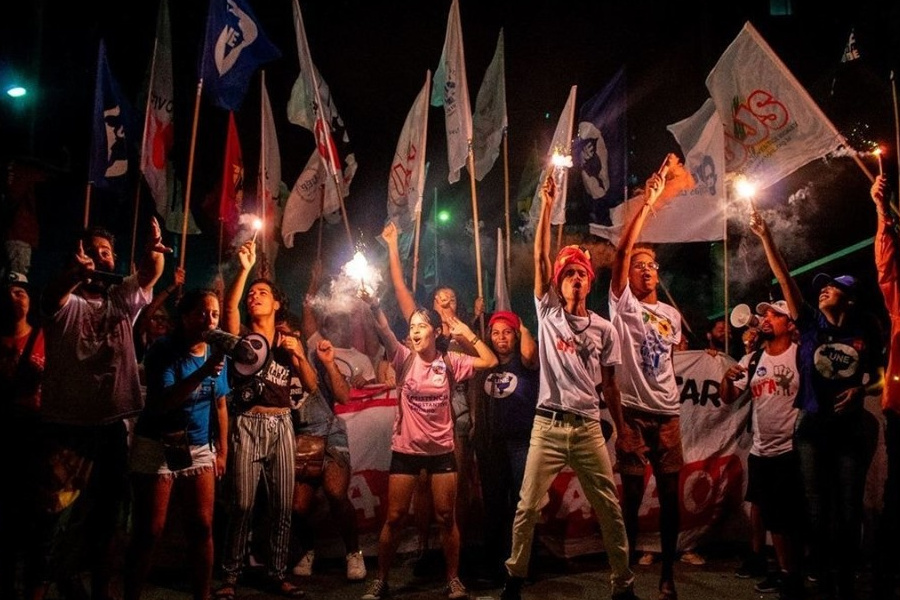
Brazil: Students, teachers unions and civil society lead the struggle for the right to education
August 16, 2019On this World Humanitarian Day, we affirm that the student, education professionals and civil society-led mobilizations that took place across the country on August 13 are a strong reaction and a sign of resistance to a government that has been making great strides towards a not desired past.
This moment is one of a huge crisis in the Brazilian democracy. Not that we haven’t experienced crisis in the past, but what we have witnessed since the impeachment of president Dilma Rousseff in 2016 is the country’s democratic foundations and institutions being weakened and a backsliding in social achievements. We had never advanced so far in strengthening democracy and advancing social rights, and we had never seen setbacks at such a rapid pace.

Chile’s “Safe Class Law”: Violence in public schools and the “regulation” of school life
August 10, 2019In 2008 UNICEF published the study “School life, an indispensable component of the right to education”, inquiring about internal regulations in educational establishments in the Metropolitan Region of Santiago, Chile. The results are surprising, for example, they showed that more than 50% of the regulations did not comply with the legal order in effect, that is, they transgressed or omitted rights, in particular regarding disciplinary matters. It was also noted that the regulations were reduced to a series of rules oriented only to disciplinary issues, which did not look at the community as a whole, nor the relationships, nor the responsibilities of all levels in the construction of reality. In addition, community participation was not validated in the vast majority of them. Finally, the study recommended not using the regulations to rule life in schools, at least not as they were then (UNICEF, 2008). (more…)
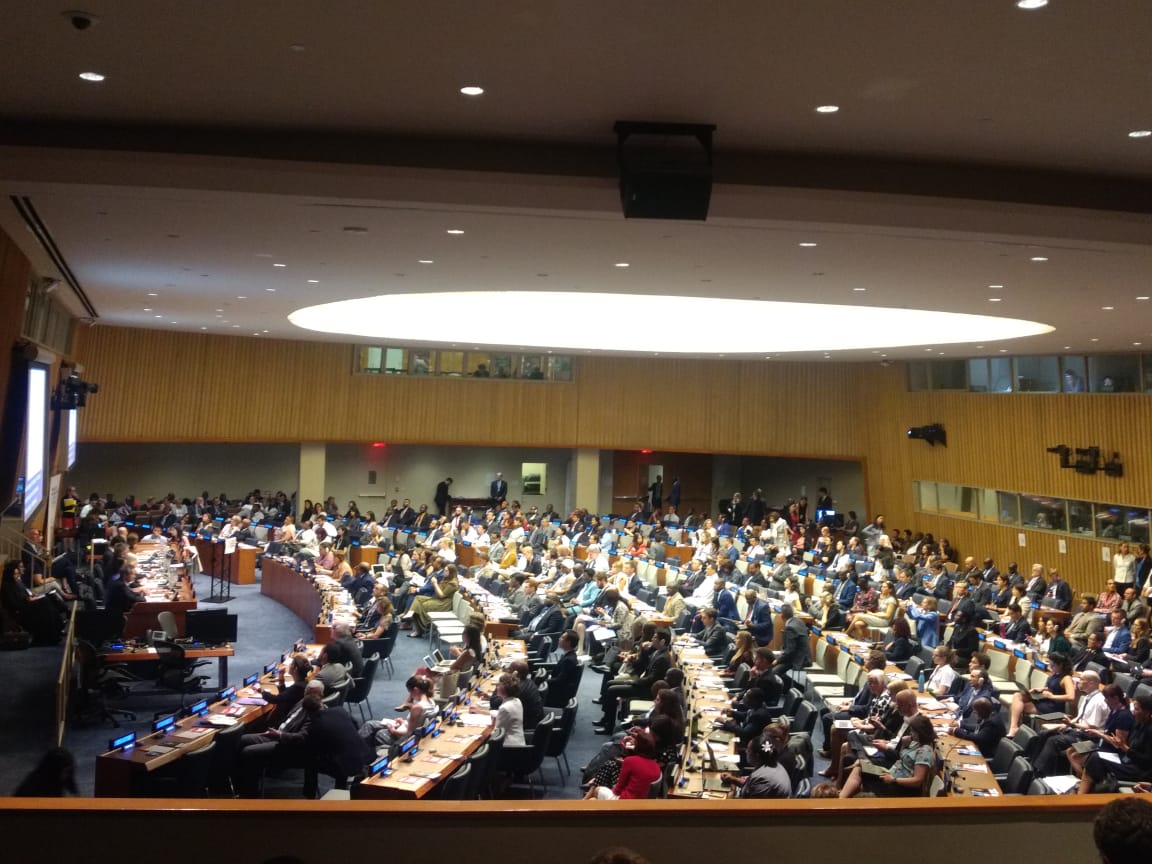
SDG 4 Review of Chile and Guatemala at the UN
July 17, 2019At the UN High-Level Political Forum, the platform to follow up SDGs across the world, Chile and Guatemala presented their voluntary national reviews about the implementation of this agenda. Four countries from Latin America and the Caribbean volunteered to participate in the 2019 review, reporting the actions taken for the achievement of the SDGs: Chile, Guatemala, Brazil and El Salvador. However, on the eve of the High-Level Political Forum, the last two countries announced that they would not participate in the review.
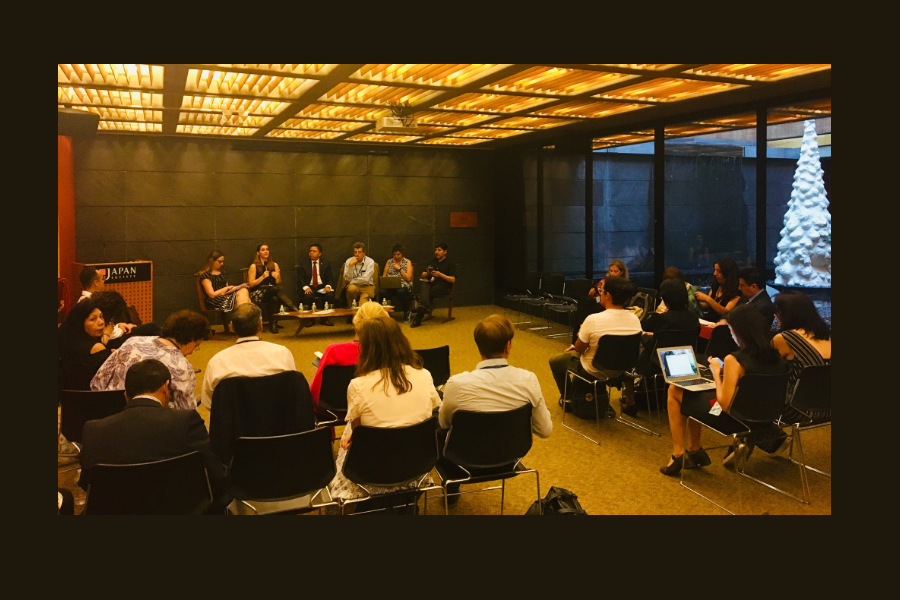
Side event during the UN Forum: “We must educate for citizenship and democracy”
July 11, 2019“One of the main challenges is to guarantee educational quality and, for that, reflect on what kind of quality we want, towards the guarantee of an education that trains people for global citizenship and the strengthening of democracy.” This was one of the reflections that were shared during the high-level discussion “Human rights at risk: impacts for education in Latin America and the Caribbean.” The meeting was held yesterday (July 10) in New York, in the context of the UN High-Level Political Forum, and as an initiative of the Latin American Campaign for the Right to Education (CLADE).
The participants in the opening table of the event were: Héctor Alejandro Canto Mejía, Deputy Minister of Education of Guatemala; Naiara Costa, from the Division of the SDGs (Sustainable Development Goals), Department of Economic and Social Affairs of the United Nations (UN / DESA); Roberto Bissio, from Social Watch; and Camilla Croso, general coordinator of CLADE.
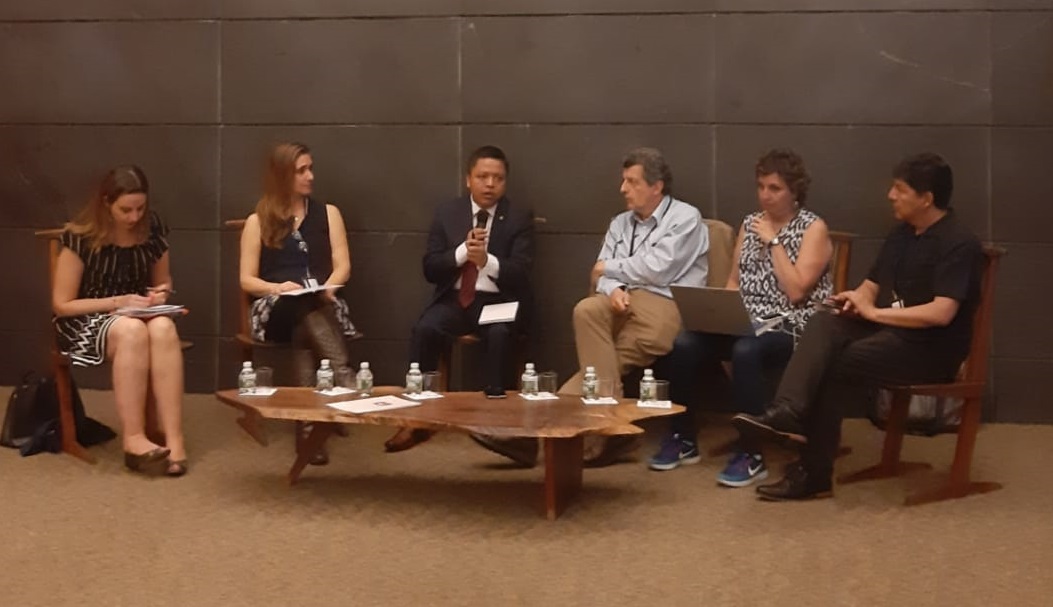
During the discussion, the challenges of education in the region were addressed, in a context of setbacks for human rights and multilateralism, as well as of fragility of democracies. Cultural diversity; school coverage in primary and secondary school; teacher training; migration; respect for diversity and gender equality in education; educational financing; the increased privatization, while public systems are stigmatized; and the challenge of guaranteeing a quality lifelong education for all, were topics highlighted in the presentations.
“All human rights are at risk when we do not comply with the human right to education,” said Camilla Croso at the opening of the conversation.
Next, the Deputy Minister of Education of Guatemala, pointed out some challenges for the realization of the human right to education in his country. “The main challenges are guaranteeing coverage and, in parallel, advancing the rate of completion, transition from primary to secondary school, quality and equity in the education system,” he said.
He added as another challenge the guarantee of quality lifelong education for all. “An education that provides training for global citizenship and democracy.”
Roberto Bissio emphasized the importance of ensuring human rights and protecting the people who defend these rights beyond the achievement of the Sustainable Development Goals. “The central question is to what extent the SDGs legitimize the struggle for rights. We can not forget that in Latin America and the Caribbean human rights defenders are at constant risk,” he said.
Naiara Costa addressed the role of the United Nations and multilateralism for the realization of human rights and the promotion of sustainable development. “To achieve the SDGs, it is essential to connect the global level with the local, national and regional levels”, he said.
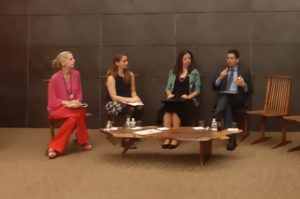
Debate
Representatives from the following organizations: Argentine Campaign for the Right to Education; Bolivian Campaign for the Right to Education; Campanha Nacional pelo Direito à Educação – Brazil; Forum for the Right to Public Education in Chile; Salvadoran Network for the Right to Education; Collective of Education for All of Guatemala; Forum Honduras Honduras; Peruvian Campaign for the Right to Education (CPDE); Socio-educational Forum (Foro Socioeducativo), of the Dominican Republic; Popular Education Network among Women of Latin America and the Caribbean (REPEM); ILGALAC (International Lesbian, Gay, Bisexual, Trans and Intersex Association for Latin America and the Caribbean); Global Campaign for Education; ActionAid International; and EDUCO, among other organizations and networks, participated in the debate.
Vernor Muñoz, from Global Campaign for Education, recalled, as an obstacle to education and other human rights, the criminalization of social protest, especially of students and teachers in different countries of Latin America and the Caribbean, which also operates in the symbolic field and in the media.
Roberto Baeza, from ILGALAC, spoke about comprehensive sexual education and school violence against LGBTI people. “Gaps in inequality in education and other sectors are widened with the advance of fundamentalisms. The trans population does not have access to their right to education, they are who most leave the school because of experiences of discrimination,” he said.
Marcela Browne, from the Argentine Campaign for the Right to Education, said that in the debate on the fulfillment of the right to education, it is necessary to ask: “What are the risks of external debt and tax fraud for educational justice in the region?
New document
During the event, CLADE launched the publication “Civil Society Advocacy for the Human Right to Education: Stories and Lessons Learned from Latin America and the Caribbean – Volume 3”.
Read more and download the document here
CLADE at the UN High-Level Political Forum
Almost four years after the adoption of Sustainable Development Goal 4 (SDG 4), about education, the United Nations High-Level Political Forum (HLPF) 2019, official platform for monitoring the Sustainable Development Goals (ODS) internationally, took place from 9 to 18 July in New York.
In this edition, the HLPF focuses on the revision of SDG 4, as well as goals 8 (decent work and economic growth), 10 (reduction of inequalities), 13 (climate action), 16 (peace, justice and solid institutions) and 17 (partnerships to achieve the objectives).
CLADE participated in the HLPF and its side events with a delegation of 14 people from 9 countries: Argentina, Bolivia, Brazil, Chile, El Salvador, Guatemala, Honduras, Peru and the Dominican Republic.
CLADE members in the countries that were reviewed by the UN this year (Guatemala and Chile) prepared reports with contributions on the status of SDG 4 at national level. In addition, CLADE members from Brazil and El Salvador prepared reports, highlighting the challenges of education in their territories, since these countries had indicated that they would participate in the review process carried out by the UN, but finally this did not happened.
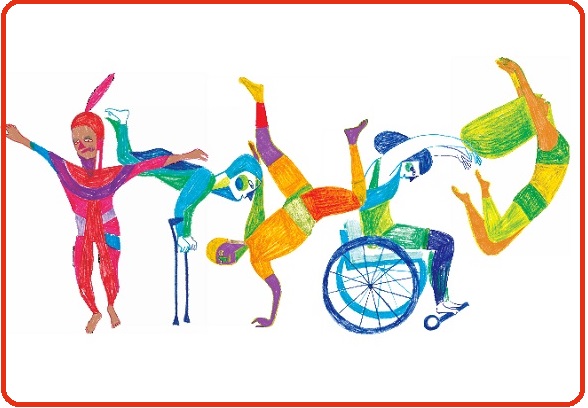
GAWE 2019 in Latin America and the Caribbean: An opportunity to analyze the state of the human right to education in the region
May 2, 2019The Global Action Week for Education (GAWE) is a great international mobilization that this year focuses on the importance of guaranteeing the human right to education for the realization of all human rights, and also to achieve sustainable development. (more…)
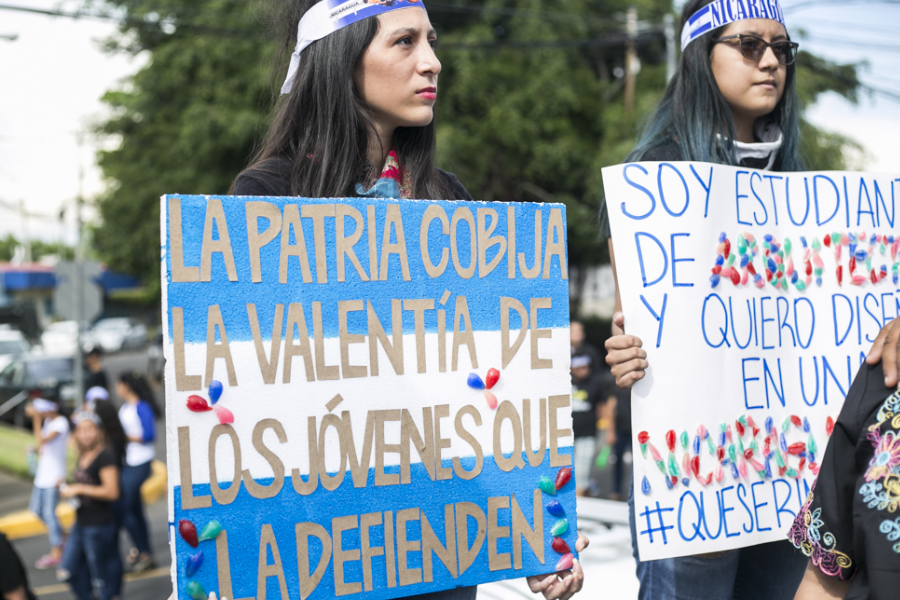
Nicaragua: Forum carries out advocacy actions for education and social participation in partnership with students and youth
February 27, 2019A thematic roundtable on higher education was established within the coalition to strengthen the capacities of young people as leaders of student movements (more…)
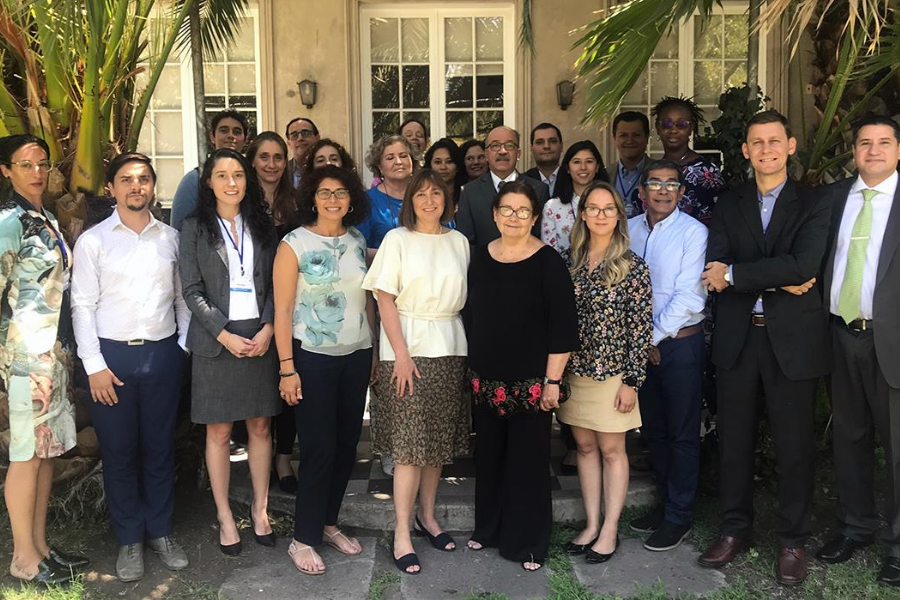
Latin America and the Caribbean align their actions to meet global education targets and move forward in their priorities
February 26, 2019Members of the Regional Steering Committee for Sustainable Development Goal 4-E2030 (quality education) decided during their first meeting that for the next 12 months they will undertake actions that focus on educational inclusion and equity, one of the four regional priorities. The participants urged concrete actions to address the educational challenges associated with intraregional migration such as the recognition, certification and validation of skills and diplomas. Measures to prevent school dropout were also discussed.





